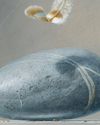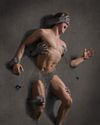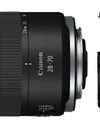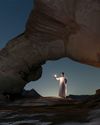
AT WHAT AGE do you become too old? In Michel d’Oultremont’s case it is 27. While that may sound incredulous to most of us, in Michel’s case turning 27 has proven to be a critical point in his brief career as a professional wildlife photographer.
Turning 27 means he’s too old to enter the Rising Star Portfoilio Award in the prestigious Wildlife Photographer of the Year competition, run by the Natural History Museum in London. This award is open to photographers aged 18 to 26 for a portfolio of six photographs, and Michel has won it – twice. The first time was in 2014 with a collection of images taken in the rural low country of the Netherlands and Belgium. Speaking about that first success, the Belgian-born photographer said at the time: “I try to photograph the environment first, along with animals that happen to live in it, pass through it, or engage with it. I want to take pictures that do justice to the emotion that this generates for me and in this way helps raise awareness of the beauty of nature and the importance of conservation.” Michel’s second success in the competition came four years later in 2018. He had another set of six pictures that (except for one) were confined to that small area of northern Europe, which has been his home and favoured photo haunt throughout his life. His competition success is further proof that the best pictures are often made in an environment as familiar as your own home – requiring frequent return trips, local knowledge, and a depth of understanding that a single fleeting visit can never truly attain.
This story is from the {{IssueName}} edition of {{MagazineName}}.
Start your 7-day Magzter GOLD free trial to access thousands of curated premium stories, and 9,000+ magazines and newspapers.
Already a subscriber ? Sign In
This story is from the {{IssueName}} edition of {{MagazineName}}.
Start your 7-day Magzter GOLD free trial to access thousands of curated premium stories, and 9,000+ magazines and newspapers.
Already a subscriber? Sign In

The Art of Copying Art - James Paterson shows you how to use your Canon gear to capture artwork and paintings the right way with simple camera and lighting skills
Whether you want to capture a painting like the above, digitise old prints or reproduce any kind of canvas, there's real skill in capturing artwork with your camera. Not only do you need the colours to be accurate, you also need to master the spread, angle and quality of the light to minimise glare and show the work at its best.This painting by the artist Bryan Hanlon has a wonderfully subtle colour palette. To reproduce the painting in print and digital form, it needs to be captured in the right way.

Fright night
Canon photographer and digital artist Alexander loves to craft incredible fantasy scenes with a spooky horror twist

Sharpen your shots with DPP
Sharpening a digital image also increases contrast at the edge of details

CANON ImagePrograf PRO-1100
Deeper blacks, better bronzing, greater lifespan and 5G Wi-Fi -Canon's new printer is full of new tech, says

Canon's new 'kit lens' is actually a half-price f/2.8 trinity lens!
The Canon RF 28-70mm F2.8 IS STM lacks a red ring, but borrows premium features from its L-series siblings

DREW GIBSON
Pro motorsports photographer Drew on why he hasn't (yet) switched to Canon's mirrorless system, why old-school techniques can be the most reliable, and the lessons learned from more than a decade shooting the world's biggest car brands

Up in smoke
Make a smoky shape in Affinity Photo and get to grips with the amazing Liquify Persona under the guidance of James Paterson

Expand your creativity with Generative Fill
Photoshop's Al-powered feature brings revolutionary new tools to image editing. James Paterson reveals all...

Turn your images into vintage postcards
Wish you were here? Sean McCormack explains how you can give your summer photographs a vintage postcard look

The Angel Malibu
Light painting an American movie producer in the Wadi Rum Desert in Jordan was a highly unlikely evening out for David!